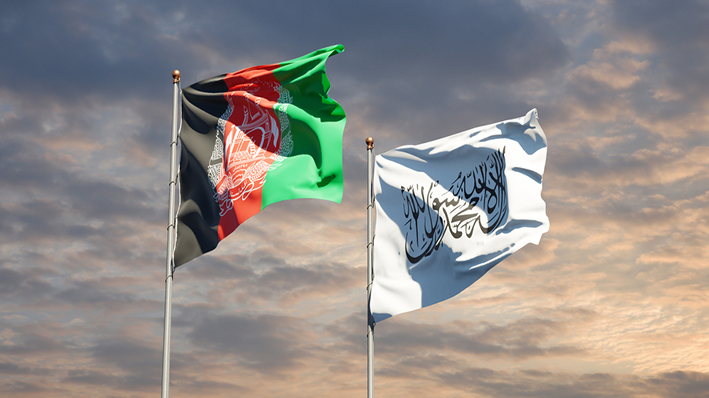
Leo Altman/Shutterstock.com
Ending the “Forever War”– became a callous, consequential disregard of longtime partners.
The American War in Afghanistan, American president Joe Biden announced, would conclude on September 11th, 2021 – the twentieth anniversary of the catalyst of the Afghan War, September 11th, 2001. By the September 11th deadline, the remaining American and International Strategic Assistance Force (ISAF) coalition would be withdrawn from Afghan land.
After nearly twenty-one thousand American military casualties, two-thousand-five-hundred of which deaths, and over two trillion dollars spent, the cost of the Afghan ‘Forever War’ grew too great.
Having criticized President Trump for following a similar trajectory, a litany of moderate congressional Democrats and Republicans joined in criticizing President Biden for his decision to “walk away (Shaheen, D-NH)” and “abandon the fight (Cheney, R-WY).
good move, bad move
Conversely, primarily progressive Democrats lauded the President for his decision to end the heavily controversial and costly conflict in favor of reducing military expenditure, drawing down American foreign operations as well as mitigating the drastically underreported toll on the Afghan people.
“We went to war with clear goals… we achieved those objectives… it’s time to end this forever war” – Joe Biden, April, 2021.
Describing ISAF’s objectives as purely those temporarily achieved in the opening salvos of a twenty-year, hot conflict is akin to sprinting the first mile in a marathon.
state building
Following the removal of the Taliban from power, attention, personnel and funds were focused on domestic Afghan development with an eye on Afghan state-development.
Democratic elections and increased observance of human rights, particularly for girls and women, have been breakthroughs achieved in the decades-long conflict. These developments have been weighed against their expensive and bloody costs – stirring nation and worldwide debate.
While some will claim success and others abject failure, the general debate fails to account for the imminent backslide and the consequences for the Afghan men and women who worked with the West to fight our common foes, establish a stable state and secure a better future for themselves and their compatriots.
PRICE OF COOPERATION
The introduction of democracy to the Afghan state after a theological dictatorial regime under the Taliban was welcomed by many Afghans, particularly in urban areas. International organizations, bolstered by the force presence of ISAF, focused on introducing fundamental rights with special attention paid to increasing rights for women nationwide.
Under the Taliban regime, strictly enforced, fundamentalist laws were passed. Girls were banned from education, women were systematically denied what little access to healthcare was available and most strikingly, the Taliban regime required all women to have full Burqa covering as well as male chaperons in public – as access to jobs, healthcare and even public spaces exposed women to widespread physical and sexual abuse, trauma and starvation.
PROGRESSIVE PROGRESS
The new Afghan regime, consisting of 21% women, up from zero, twenty years back, has codified protections and rights for women enshrined into its constitution.
Alongside the theoretical improvements come the over 3,000 new healthcare facilities constructed nationwide giving 87% of the nation relative access to emergency care. significant improvements to the lives of, mainly urban and suburban, Afghan women.
While international organizations, complimented by ISAF, were able to contribute significant funds and security to these advancements, very few of the breakthroughs in Afghanistan would be possible without the popular political will.
THEIR STATE
Faced with an ever-present and resurgent Taliban, who have suicide-bombed and terrorized the nation incessantly, a significant portion of the Afghan people have stood steadfast in the construction and defense of their new state.
The Afghan people have seized upon opportunities to join the civil service or even the Afghan National Police (ANP) and Afghan National Army (ANA) who have been trained and fought alongside American and ISAF forces for years.
Each of these projects, however, despite the political will and enthusiasm, have been enabled by the security presence of the ISAF forces. As we draw closer to the September 11th ISAF withdrawal, this critical guarantee has vanished.
leverage lost
With Taliban-Afghan Government negotiations ongoing, with the Afghan government now losing significant leverage, a series of serious setbacks in the domain of civil society are expected. Are we prepared to leave our Afghan partners at the mercy of a vengeful Taliban regime? The Biden Administration, and Trump’s before his, have answered with a firm, ‘yes’.
In less than a calendar year, 9 international journalists and 17 human rights workers have been murdered by the Taliban. In the last 3 years, spanning the period of considerable Western military downsizing, 65 media members have been killed in conflict or executed by the fundamentalist Taliban.
The International Federation of Human Rights have highlighted the resurgent, targeted violence, noting that hundreds of human rights defenders, mainly women, have had to flee or relocate due to repeated, credible threats on their lives. Furthermore, after nearly twenty years of military tactic sharing, technical training and assistance, the ANA has buckled under the serious Taliban military offensives with thousands of ANA troops fleeing for nearby Tajikistan.
Soldiers interviewed feared the repercussions of prior cooperation with the Americans and generally feared for their lives and that of their families, friends and communities.
AN UNTRUSTWORTHY PARTNER
Did we abdicate our responsibilities in Afghanistan prematurely? While it appears so, it is unknown when or whether the Afghan government, civil society and military would ever be stable and autonomous. Regardless, the exit from Afghanistan and abandonment of our Afghan partners sets a dangerous precedent locally, regionally and internationally.
The United States and West, regionally, have engaged in various cold-proxy and hot wars in the continuation of the War on Terror and pursuits of several regime changes. Namely in Syria, the United States has backed and supplied the Free Syrian Army (FSA) against Syrian Dictator Bashar Al Assad and has supplied similar assistance to the People’s Protection Unit (YPG) in the fight against IS.
In the context of contemporary, or even conflicts dating back to the Cold War, the US and West have relied enormously on the backing of regional tribes, militias and organizations to fight their wars and do their bidding.
EARLY ALLIES
In the opening scenes of the Afghan War, the Americans operated in cooperation with the Northern Alliance, a loosely organized set of Afghan Tribes and Warlords who shared a similar disdain for the Taliban.
Having demonstrated to the Afghan state, military and people that the West is unwilling to commit to its pledges, our capacity to maintain constructive relations with regional partners, state or non-state, is greatly diminished. The relative cost of doing business, let alone fighting alongside, the West has now increased given the lack of any guarantee of sustained protection and support.
Throughout the Middle East and various other developing regions, the divorce from the Afghan partners reinforces the solitude many human rights, democracy and journalists face in their daily lives.
diminishing prospects
As Afghanistan gets drawn deeper into its civil war, we must also be cognizant of the significantly diminished likelihood of effective partnership between Western governments and Afghan groups.
Furthermore, while human rights groups and neighboring nations prepare for further influxes of refugees and security analysts warn of the growing threat of a new Taliban government, President Joe Biden and all ISAF partners must now face the music for the impending catastrophe looming for the men and women who stood alongside them.
________
Elijah Glantz is currently a research assistant interning for the London based, Royal United Services Institute’s Department of Terrorism and Conflict. He is completing his final year of undergraduate study in Political Humanities and International Affairs at Sciences Po Paris – Campus de Reims.
About the Article
A look at the naïve U.S. decision to withdraw all troops from Afghanistan and trust the Taliban to enter peace talks with the government.



